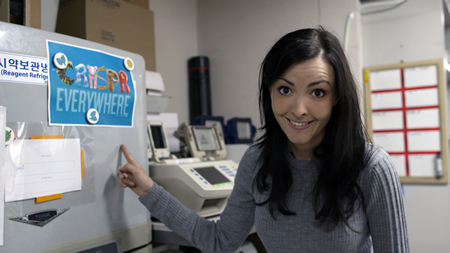When: Tuesday 13th November, 11:45am – 12:45pm
Where: Theatre, Level 2 down the stairs to the right of the registration/foyer area
Hashtag: #T6
The key to the art of presentation is knowing it’s a dictatorship, and you are in control.
Dr Karl will take you on a fun guided tour through how to deliver a Powerpoint/Keynote presentation. There will be tips and tools to help you engage your audience, from simple microphone technique to how to blend content and segues to generate humour.
Learn the skills to take your audience on a science journey to remember from one of the country’s most experienced presenters.
Session Producer/Chair
Dr Phil Dooley, ASC National Co-Vice-President, Phil Up On Science
Workshop Facilitator/Presenter/Performer
Dr Karl Kruszelnicki, Julius Sumner Miller Fellow for Sci Comm, University of Sydney



















